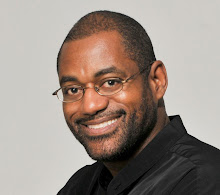A friend asked me the other day to define forgiveness. Here is what I sent him.
_____________________________________________________________________
_____________________________________________________________________
Hey Buddy---
I’m catching up on emails that I’ve missed the last few months
and noticed I hadn’t responded to this one.
Attached is a primer I put together on practicing forgiveness. Let me give you a definition and then explain
it.
FORGIVENESS
is seeing your brother as sinless because you recognize what you thought he did
to you never occurred.
Consider: Your wife having a dream about you lying to her over
and over again. When she wakes, she’s
upset with you. You explain that it was
just a dream. However, this doesn’t help—she is still mad at you. You explain that she is mad at you for what
happened in her dream. You explain that
it was her dream, that she made it all up, and that she is mad at you
for something she made up, when nothing has happened. And so this thing that is not real (her
dream) is getting in the way of your real relationship with her because she is
believing in something that is not real.
This, in a nutshell, explains forgiveness.
The spiritual discipline I follow starts with a few fundamental
premises:
- God is perfect, eternal, unchanging, only loving.
- Everything God created is like God: perfect, eternal, unchanging, only loving.
- Only what God created is real and we cannot change what God made.
- Right now, we are home in God, but we are dreaming a dream that we are living in a world that is full of change, filled with things that are good and bad, and dealing with people, some good, some bad.
- Because it feels real, we think this world is real. But since God does not make anything that is different from God, this world that we think we live in could not have been made by God. We are still home in God, as we always have been, just dreaming we are living in a world that is unlike God and could not possibly exist.
- Forgiveness is the centerpiece of our awakening because it leads us to see that what we thought others did to us has never occurred. And allows us to see everyone as God created him, innocent.
This philosophy is summed up in three short sentences, which
appear at the start of The Course in
Miracles.
- Nothing real can be threatened.
- Nothing unreal exists.
- Herein lies the peace of God.
Anyway…probably more than you wanted to know,
Michael

No comments:
Post a Comment